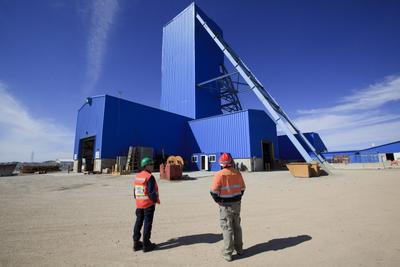A large bid by a foreign investor or any bid by a SOE now triggers a review by parliament. In September, Chalco dropped its bid for South Gobi, citing the new law.
Mongolia’s new regime is actually similar in its intentions to Australia’s and Canada’s in distinguishing private and SOE bids, but there is a key difference. In Australia or Canada, decisions on FDIs are made in the context of a stable and predictable regulatory regime; stability in the regulatory regime has not been a strong suit of Mongolian mining regulation.
Many non-Mongolians have focused on ‘resource nationalism’ to explain the new laws and to understand the detention of Sarah Armstrong, an Australian lawyer for South Gobi, until last week. Resource nationalism is generally equated with some evil movement aimed at the nationalisation of resource assets.
In Mongolia this claim is most commonly linked to the demands by some parliamentarians and parts of civil society that the Investment Agreement for the Oyu Tolgoi mine, jointly owned between Rio Tinto and the Mongolian government, be revisited.
But where foreign investors see resource nationalism, Mongolians see an attempt to preserve the resource wealth of their country and to reap its benefits for current and future generations.
Striking the appropriate balance between material needs, social aspirations, environmental and cultural protection, and financial rewards for investors is not easy. Jurisdictions that have had decades to arrive at appropriate mechanisms for these decisions are still struggling with these issues. Some have argued that the foreign investment law has led to a chill in FDI to Mongolia since its passage in May. Part of that slowdown is rooted in uncertainty surrounding the triggers for a review of foreign investments, particularly regarding SOE investments. But if a country is so dependent on mining for its future, is a slowdown not a reasonable cost to pay for more careful deliberation? The State Khural’s decision to re-confirm the ban on new mining licenses in the last days of 2012 is probably a good decision in this context.
Still, there is some element of kneejerk nationalism in Mongolia and the Mongolian parliament. Some leaders ignore the fact that ownership of mineral resources does not necessarily automatically lead to profit. Mongolia needs some of the skills, technologies and capital that foreign investors can provide.
Nationalism scares foreign investors, who have a tendency to engage in herd behaviour, especially in the mining industry, making the perception of political risk potentially more critical than actual risk. This is especially the case for a place like Mongolia, where much of the information (including this discussion) relies on perception rather than measured empirical analysis.
Even so, the greatest hurdle to the development of a successful regulatory regime — one that would give Mongolians the greatest possible benefit while minimising social convulsions and environmental problems — is not political rhetoric. It is corruption. Mongolian decision-makers must be aware they have a responsibility to all Mongolians, not just themselves and their immediate social circles. In this year of a presidential election, hopefully anti-corruption measures will continue to be clarified further and pursued more vigorously.
Beyond the problem of public corruption, Mongolia still lacks capacity to make good policy. As the engine of the mining boom, the Oyu Tolgoi project, fires up and propels the country to what some are expecting to be another world-beating year of economic growth in 2013, Mongolian policymakers face challenges in all areas of government activities and social relations. Policy failures in these areas are more likely to hold Mongolia back than a lack of foreign investment.
So when the mining industry in advanced industrialised countries complains about governance and regulatory uncertainty in Mongolia, they need to recognise the country’s limitations, but also acknowledge the difficulty of the struggle to balance competing goals in mining regulation. Investors should be especially aware that this struggle has taken a meandering path in their home jurisdictions as well.
There are lessons in the current discussions for Mongolia, to be sure. Mongolian policy-makers need to be more aware that the perception of regulatory initiatives abroad is often as important as the reality. They should also be thinking longer term when it comes to investments. The current boom won’t last forever, and this generation should consider creating a sovereign wealth fund to carry Mongolia through leaner years in the future. Such a fund would seek to diversify its holdings internationally and would be regarded as a SOE in some jurisdictions. If Mongolian policy excludes some forms of such investments now, policymakers should not be surprised if they will be excluded in the future.
Julian Dierkes is Associate Professor at the Institute of Asian Research, University of British Columbia. He is the editor of Change in Democratic Mongolia — Social Relations, Health, Mobile Pastoralism, and Mining (Brill, 2012).


Well written piece. Mongolia has tremendous mineral wealth and potential. Mongolia seeks to avoid having mineral wealth squandered like some developing countries, but must not allow that concern to trump the need to develop fair and consistent laws to attract investment.